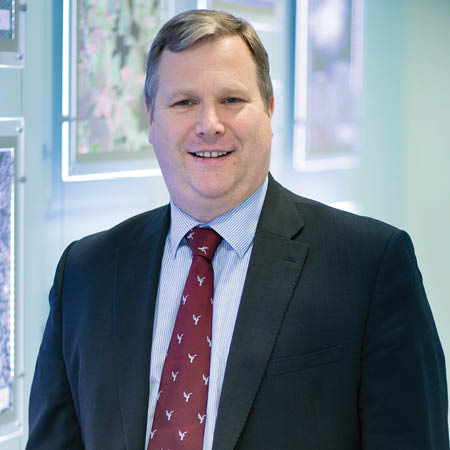Surrey Satellite Technology Limited (SSTL) first changed the economics of space in the late 70s when it pioneered commercial ‘off-the-shelf’ satellite technology. Since then, it has continued to make its mark on the industry by taking an innovative approach to the design, build, test, and operation of spacecraft. The organisation is a spin-off of the UK’s University of Surrey and has more than 500 staff working on turnkey satellite platforms, space-proven satellite subsystems, and optical instruments.
Patrick Wood became the Managing Director of the group early last year, bringing with him extensive experience across the sector. He had previously been a shareholder director with SSTL so was fully aware of the leading and innovative work it was doing. “As soon as I realised that there was an opportunity to step into this role, it was hard for me to ignore it or turn it down,” he says. “I am accustomed to running very large organisations in Airbus Defence and Space, but there is a dynamic within SSTL which is wonderfully responsive to market play, and has innovated in all business areas from telecom to navigation, earth observation, and science. It was just too good of an opportunity to turn down.”
Patrick believes SSTL’s ability to adapt to changing marketplaces, as well as its closely-held core values, positions it very competitively in the terrestrial technology space.
“We are not averse to looking at how the marketplace is adapting and then changing our philosophy or our products to match,” he explains. “I think the other area that we do push very heavily is we have a particular approach to the quality standards and the processes that we follow in SSTL. We are here to challenge ourselves in terms of the norms that people have grown up with in the space industry. It is a continuously dynamic industry even if people believe that it has quite slow-moving changes in technology. A company like SSTL has the ability to adopt some of the new technological ideas that have come along very rapidly and we don’t suffer from that ‘not invented here’ syndrome. We are very open to new concepts.”



